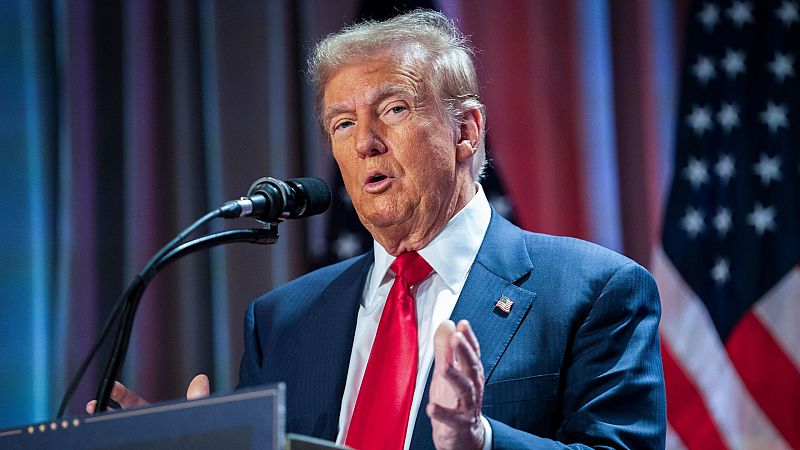Trump claims progress on illegal migration after call with Mexican president

US president-elect Donald Trump has declared a victory in curbing illegal migration through Mexico following a conversation with Mexican President Claudia Sheinbaum.
Trump claimed that he had had made a breakthrough with his Mexican counterpart after threatening to impose massive tariffs on Mexican imports. However, Sheinbaum emphasised that her government has been managing migration independently and has no intention of closing its borders.
The discussion came in the wake of Trump’s threats to impose tariffs on Canada and Mexico as part of his broader push to tackle illegal immigration and drug trafficking.
Trump said Sheinbaum had “agreed to stop migration through Mexico,” but the Mexican leader took to social media to clarify her position, stating that Mexico is already “taking care of” migrant caravans and describing the exchange as an “excellent conversation”.
“We reiterate that Mexico’s position is not to close borders but to build bridges between governments and between peoples,” Sheinbaum added.
Trump took the conversation as a win, claiming on his Truth Social account that it had “effectively closed our southern border” and that it was a “very productive conversation”.
The impact of Trump’s initial tariff announcement rippled through financial markets, a sign that even if they are not implemented, Trump can assure supporters that the mere threat to impose them is an effective policy tool.
In a separate social media post, Sheinbaum said the two leaders had discussed Mexico’s approach to migration. She stated that caravans “are not reaching the northern border because Mexico is taking care of them”.
She also highlighted a mutual commitment to addressing security concerns and curbing fentanyl smuggling, insisting that cooperation would remain "within the framework of our sovereignty".
Illegal migration across the US-Mexico border has decreased significantly in recent months, with crossings down 40% since last December. US officials attribute much of the reduction to enhanced cooperation from Mexico, which has added checkpoints and intensified border patrols.
Mexican authorities have also adopted a strategy of relocating migrants to southern Mexico to deter further northward travel, a policy which experts say is designed to discourage migrants by exhausting their resources.
Tariff threats remain uncertain
On Monday, Trump reiterated his plan to impose a 25% tax on all imports from Canada and Mexico as one of his first actions upon taking office in January, along with an additional 10% tariff on China for its alleged role in the exportation of material used in the production of fentanyl.
The implications of of potential tariffs are high. Through September, the US imported $379 billion (€359 billion) in goods from Mexico, $322 billion (€305 billion) from China, and $309 billion (€293 billion) from Canada.
The status of the proposed tariffs remain unclear. If implemented, they could lead to higher consumer prices and slower economic growth, threatening the trade agreement between the US, Canada and Mexico that was finalised during Trump’s first term.
On Wednesday, Trump announced plans for a large-scale ad campaign aimed at educating the public on the dangers of fentanyl, which he described as a “horror” drug.
Today

